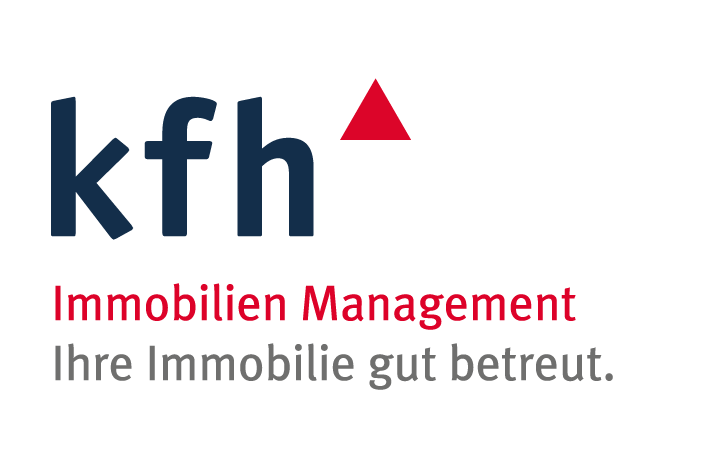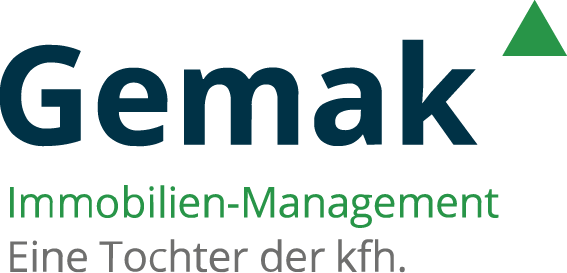FAQ
Our property manager A-Z
As a property manager, you face exciting and varied tasks on a daily basis. This is one of the reasons why many people would like to work as a property manager. But what requirements must actually be met to be allowed to manage residential properties?
In this article, we will show you what you need to look out for and under what conditions you need a permit to carry out the profession.
For a long time, the profession of administrator and property manager was not a registered profession in German jurisdiction. This has changed over the years. If you are a property manager for commercial properties or a private landlord, you do not need a license. However, as soon as it is a matter of WEG management, and therefore the management of properties by owners, a professional license is required. Since 2018, the management of residential properties has been an activity requiring a license and training. Real estate agents must also comply with the training requirement. Nevertheless, professional licensing for commercial purposes is not a major expense for estate agents and property managers. According to the legislation, real estate agents and residential property managers do not require several years of training or a degree in order to pursue the activity requiring a license.
According to the law, it is necessary to complete further training instead. This obligation to obtain a license to practice the profession results from the entry into force of an amendment to Section 34C of the Trade, Commerce and Industry Regulation Act. In order to introduce a professional licensing regulation, the law stipulates that residential property managers must undergo further training. Since August 1, 2018, all prospective and existing real estate agents and residential property managers must attend at least 20 hours of professional training within three years. As the 20 hours must be completed within 3 years, 6.7 hours per year are sufficient to meet the training requirement.
The law on professional licensing regulations for commercial real estate agents and property managers in accordance with Section 34C of the German Trade, Commerce and Industry Regulation Act and the Real Estate Agent and Property Developer Ordinance has also changed the requirements for the implementation of activities requiring a license. As residential property managers, they ultimately act on behalf of the owners and manage the assets. The following requirements must therefore always be met as a property manager:
- Reliability
- Orderly financial situation
- Taking out professional liability insurance
Professional liability insurance makes sense in order to avoid personal liability with your private assets. This includes cover for the administrator of up to 500,000 euros per case, up to a maximum of 1 million euros per year. Insolvency can also be avoided by ensuring orderly financial circumstances. The law also stipulates that the reliability of the administrator must be guaranteed. This is due to consumer protection. Both estate agents and managers who work with properties that include residential space must meet these requirements.
Not every estate agent and every property manager is obliged to undergo further training in accordance with § 34C GEWO. Private owners are generally exempt from the licensing requirement. Condominium administrators who do not carry out the administration in the form of a trade, but as a self-administration, do not have to provide further training as a contribution. Likewise, administrators who carry out their work on a voluntary basis do not have to undergo any further training. Furthermore, all administrators who are not rental administrators and therefore do not manage residential property do not require further training.
This means that such a professional license is really only necessary if residential property is managed.
If the owners of a property or several properties are part of a community of owners, it is important to manage the property properly. As WEG administrators, communities of owners are called upon to look for an administrator. Property managers then take over the tasks of the condominium owners. However, not every condominium owners' association wants to appoint a WEG administrator. Instead, one of the owners becomes the property manager. However, the effort involved is often underestimated.
This means that such a professional license is really only necessary if residential property is managed.
Generally speaking, WEG management of properties is enshrined in the German Condominium Act. However, the legal situation does not specify who is responsible for management. As an alternative to a property management company, it is possible to appoint one of the owners to manage the property themselves. This person then takes on all the tasks that are often performed by a property management company.
It usually depends on the individual case as to whether self-administration makes sense. If, for example, it is a rather small community of owners whose properties are manageable, self-administration by owners can make sense. However, this should be decided unanimously at owners' meetings. This serves as a basis for the other owners to trust the owner-occupier association manager in self-administration and for a good relationship to prevail. Incidentally, a condominium owner can only become an administrator if there is unanimity among the community of owners.
In addition, not everyone is suitable to take on the management of a condominium independently. A basic knowledge of the law and in particular of COA law is required. This is the only way to competently convey legal requirements such as the management contract, the data protection declaration, liability requirements and other information. An owner as administrator should therefore be well versed in matters of administration.
The role of a property manager is not for everyone. However, if one day you realize that managing the rental units within a homeowners' association yourself requires too much effort, you can subsequently hand over the management tasks to professional property managers. Appointing a property manager is quick and easy and the costs are also based on a fair cost structure according to the services provided. Reviews on the website of a condominium management company provide you and the co-owner with information on how good the management by the respective property management company is.
The real estate industry is booming and there are a variety of professions that offer exciting tasks and challenges on a daily basis. One of these professions is the job of property manager.
Since August 1, 2018, however, the professional licensing regulations have changed, at least to the extent that property managers who operate under the term "residential property manager" require further training as a prerequisite. The law "on the introduction of a professional licensing regulation" that came into force stipulates this. It states that, since August 1, 2018, prospective property managers must invest at least 20 hours in further training within three years in order to obtain professional accreditation as a residential property manager. The IHK and other institutions offer suitable training courses. To become a property manager, you can complete further training in various professional fields in order to then be able to set up a property management company. These include
- Real estate agent
- Training as a certified real estate manager
- A degree or training in business administration
- Certified real estate specialist by the IHK
In addition to completing training as a property manager, prospective property managers must also meet other requirements. For example, they must provide proof that they are reliable and that their financial circumstances are in order. In addition, every property manager must now have professional liability insurance. The professional licensing regulations for commercial purposes have been reformed since 2018 and protect property owners.
When setting up a property management company, there are also other requirements that must be met in order to be able to work as a property manager. These are not binding, but serve to ensure good management of the business. Property managers should therefore not only be able to carry out the profession in a 20-hour training course, but also in practice.
Craftsmanship, dealing with figures and good property management are prerequisites for this. As a property manager, it is also important to know the needs of the market. A better pricing of properties, the formulation of contracts and the business in the business plan can be done more efficiently by looking at the market.
Of course, the property manager should not only have accounting and technical skills, but also social skills. As a rental manager, you work directly with customers, partners and tenants and must be able to meet and understand their needs. A network with other property managers and customers is useful to give your own business a secure foothold.
As a real estate administrator and property manager, your job involves a variety of tasks. The tasks and activities range from financial matters to the organization and management of tradesmen, customers and other stakeholders. The activities include:
- Partnership-based dialog with tenants
- Compliance with the house rules
- Maintenance and repair
- Preservation of property
- Accounting, annual financial statements
- Preparation of a business plan
- Protection of the owners' assets
- Comply with legal regulations
- Briefing of tradesmen, gardeners, estate agents and third parties
- Handover and acceptance of real estate
- Operating cost accounting
- Finding new tenants as a real estate agent
- Public appearance on behalf of the property management company
Considering the tasks involved in being a property manager, it is important to be not only technically but also commercially savvy. The job as a property manager consists of tasks that can be carried out at a desk, but also tasks that need to be carried out in the residential properties themselves. You must take costs into account and always have a comprehensive overview of current events.
A friendly and positive demeanor is also crucial. After all, the requests for a property manager are not always nice. The work of a property manager also includes complaint management. As a tenant manager, you will receive complaints from tenants, owners or other parties that need to be dealt with. Here, too, we want to achieve a partnership-based exchange with the tenants and owners.
When looking for a suitable property management company, the costs for property management per unit and month are always the main focus. However, it is not the costs and prices of a property manager that should be decisive, but the services included in the costs per month. These make up the costs and thus the manager's remuneration. If you hire a cheap property management company, you will often get a provider that covers fewer services than professional companies.
Even in the job of a property manager, unplanned things happen from time to time that a property manager has to take on as a service. However, real estate professionals do not have to pay extra for these things, as they are part of the duties of every property management company. One such free service is the planning and organization of a meeting with the owners of the respective condominiums. Even the invitations and additional costs, such as postage, should not lead to additional costs or an increase in the manager's fee for a reputable rental management company.
However, there are also additional costs that property management companies may charge if the requirements go beyond normal expenses. At this point, approval from the owners of the house or property is required. These include renovation measures that go beyond the usual services. The new addition of an administration can also result in increased costs for training. Here, too, it is possible to charge additional prices for the remuneration.
Particularly in condominium management, an extraordinary owners' meeting with the owners takes place time and again. If this was not arranged by the property management company itself, such a meeting also counts as an additional expense and therefore as part of a special property management, which is also reflected in the manager's fee.
Conclusion: Hiring a property manager is not a yield killer if high costs are incurred. Rather, it is an investment in administrative costs to reduce the owners' expenses. The management takes on the technical, legal, business and organizational tasks for the apartments and deals with the tenants' concerns. Many services are already included in the management fee. Further management costs can be charged additionally by the provider with the consent of the owners if additional services are required for rental management.
A property management company takes on all the tasks and administrative activities of a property. This applies to any property management company that is responsible for separate property, apartment management or rental management. However, the areas of responsibility of a property management company differ depending on the type of property. We will show you the differences below and provide you with information about the tasks and duties of a property management company.
If a property management company acts as an independent or commercial administrator, it is a WEG administration of the common property, which is also responsible for the administration of the common funds of a homeowners' association. In this case, the WEG law applies. This states that the respective property manager may only fulfill their duties in the management contract if they have completed 20 hours of training within three years.
However, a distinction must be made between a WEG administrator and a WEG administration. While a WEG administrator is one of the condominium owners, the property management is considered a neutral body. However, both parties must fulfill their duties under WEG law.
The specific tasks of a WEG administrator include the following activities:
- Management of the common property of the homeowners' association
- Management of the common funds of the homeowners' association
- Organization and management of homeowners' meetings of the homeowners' association
- Drawing up a management contract for the homeowners' association
If it is a condominium management company, the property management company is obliged to convene a condominium owners' meeting at least every two years. This is stated in the Condominium Act.
Another property management option is the management of a property that is intended for commercial purposes and is therefore a commercial property. In addition, the management of rental units also includes all properties that contain apartments. The only difference to condominiums is that there is no homeowners' association behind the properties, but rather institutional and private property owners.
The tasks of property management must be fulfilled both for management as a condominium administrator or property manager and for the management of commercial properties and apartments. These are very varied and show that the job of janitor is demanding.
Property managers must have both technical expertise and basic operational knowledge. Furthermore, legal issues should also be clarified by the property manager. Organizational skills and tasks are also a large part of a property manager's range of tasks.
The maintenance of a property and the inspection of technical conditions are among the services that a property manager provides time and again. A property manager should therefore be familiar with the technical aspects of the building in order to be able to fulfill this task. Checking the property's facilities is also part of the technical management of the property.
Technical tasks are:
- Operation and control of real estate and property
- Monitoring and control of service providers (tradesmen, gardeners, janitors)
- Carry out maintenance measures
- Request an offer
- Key order
- Check maintenance work
In order to fulfill the duties of a property manager, it is important to be good with figures and have an affinity for business administration. Tenancy management consists largely of commercial activities. Properties not only have to be regularly valued. The profitability of the business must also be ensured. In addition, a property manager is responsible for ensuring that the cost processes between the owner and the tenants are consistent.
The commercial tasks of property management are therefore:
- Management of rents
- Dunning
- House rules
- Billing and service charge settlement
- Checking the economic key figures
- Valuations of condominiums and properties
- Accounting and annual financial statements
- Create business plan
- Management of the common property of the owners
- House charges settlement
The tasks of a property manager also include clarifying legal issues. Depending on the property, the property management company must comply with different applicable laws. This differs not only between a commercial and a residential property. There is also a difference between the management of owner-occupied apartments and rented apartments. In addition, the law is constantly changing. It is therefore the duty of a property management company to constantly collect new information and data in order to stay up to date.
The legal tasks of a property management company therefore include
- Draw up management contract if necessary
- Observe case law
- Representing the rights of owners
- Conducting negotiations as an administrator with authorities
- Complaints
- Representation of owners in court
- Legal representation of the owners
Finally, organizational tasks are also part of a property manager's area of activity. A good property management company always acts as a unit with the owners in order to implement the owners' wishes. Organizational tasks include not only disputes with owners and tenants, but also planning tasks such as coordinating appointments. The management always seeks a partnership-based dialog with the tenants.
Frequently occurring tasks of the administrators are therefore:
- Correspondence: Exchange with the tenant and owner
- Convening, planning and scheduling with the owners.
- Keeping logs and saving data
- Complaints management
- Informative circulars
- Notices in the house
- Instruction of tradesmen and other third parties




